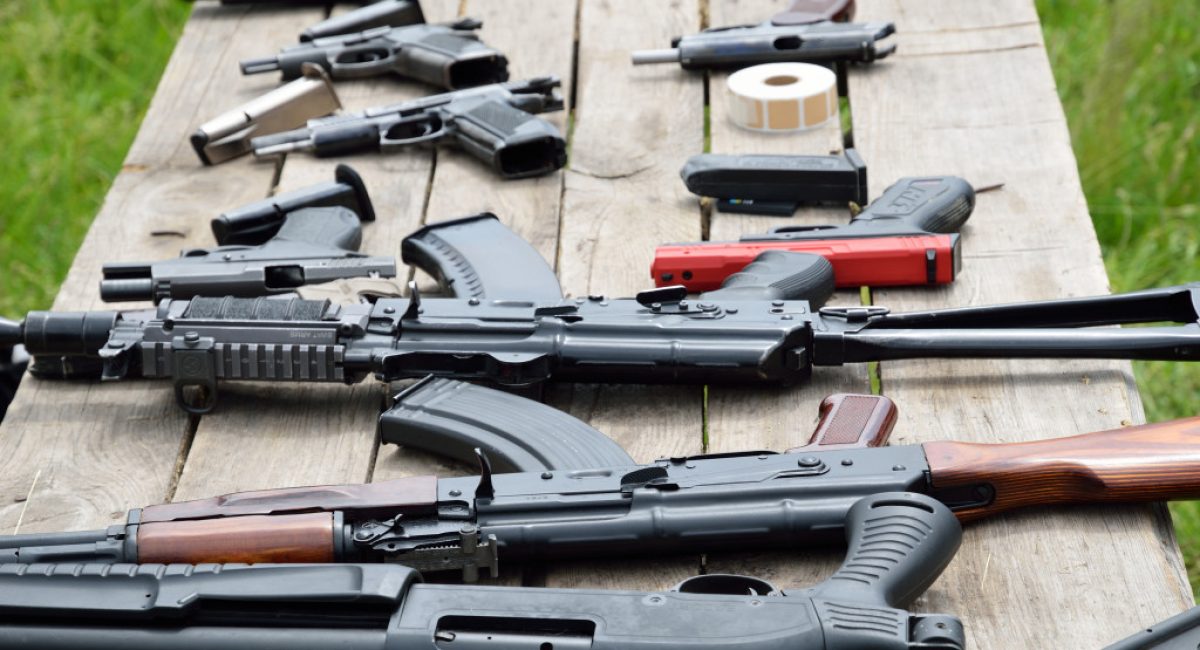- The U.S. had over 800 million guns, with 117 guns per 100 people in 2017.
- Federal laws aim to regulate firearms’ possession, use, and distribution, including background checks and assault weapons bans.
- Red Flag Laws allow for the removal of firearms from individuals deemed a risk to themselves or others.
- Gun insurance and strict consequences for breaking gun laws are becoming increasingly popular.
- Before owning or using one, it is essential to be aware of all firearms-related laws.
The United States has been plagued by gun violence for many years, with devastating mass shootings making headlines far too often. To help improve public safety and prevent gun violence, lawmakers have enacted several federal and state laws that all American citizens should be aware of. These laws help regulate firearms’ possession, use, and distribution. However, first here’s a look into the statistics on gun ownership in the U.S.
Gun Ownership Statistics
The U.S. is home to over 800 million guns owned by citizens. These guns are spread nationwide, with an estimated 117.1 guns per 100 people in the United States in 2017. This means that for every 100 people living in the U.S., there are nearly 120 firearms owned.
Federal Gun Laws
At a federal level, Congress has enacted several laws regulating gun ownership and use nationwide. Here are some of them:
The Brady Handgun Violence Prevention Act
Enacted in 1993, this law requires all federally licensed firearms dealers to run background checks on prospective purchasers before they can sell them a firearm. This law helps to prevent guns from falling into the wrong hands, such as criminals or people with a history of violent behavior. It is one of the most critical gun control policies in the United States.

The Federal Assault Weapons Ban
This law was in effect from 1994 to 2004 and prohibited manufacturing, selling, or possessing certain firearms, including assault weapons and large-capacity magazines. While this law was allowed to expire, some states have since enacted similar bans. Such bans on assault weapons are essential because they are often used in mass shootings due to their ability to fire rapidly and with high capacity.
The Gun-Free School Zones Act
This far-reaching law, established in 1990, outlawed the possession of firearms within school zones across the country.. This law was enacted to protect children and educators from gun violence in schools nationwide. The Supreme Court has upheld the law, and anyone caught violating this act can face fines or imprisonment.
The Protection of Lawful Commerce in Arms Act
This law, passed in 2005, protects gun dealers and manufacturers from their products. The law was passed in response to a wave of lawsuits filed by families of gun violence victims. While controversial, supporters argue that this law protects the gun industry from frivolous lawsuits.
The Red Flag Laws
These laws allow family members, law enforcement, and others to petition for a court order to remove firearms from individuals deemed a risk to themselves or others. These laws were created in response to the growing number of gun violence committed by people with mental illness who have access to firearms. Over ten states and the District of Columbia have enacted such laws.
Gun Insurance
Lastly, some states have passed laws requiring gun owners to purchase insurance for their firearms. This type of insurance helps cover legal and medical costs related to gun violence and holds gun owners accountable for the safe storage of their guns. Such measures are becoming increasingly popular due to the high number of accidental shootings yearly. Now, reputable firearms insurance companies offer their services to those who want to own a gun. These companies tend to have strict safety regulations and provide services such as training and storage advice.
Breaking These Laws
There are some drastic consequences for breaking any of the aforementioned laws. Here are some of them:

Fines
A fine is one of the most common punishments for violating federal or state gun laws. Depending on the offense, fines can range from hundreds to thousands of dollars and must be paid in full.
Imprisonment
Sometimes, an individual may face imprisonment if found guilty of breaking gun laws. The length of time someone spends in prison will depend on the severity of the offense.
Revocation of Gun License
Violating gun laws can also revoke a person’s gun license or permit, meaning they no longer have the right to own or use firearms. This is a severe consequence, as it will affect an individual’s ability to possess and fire guns in the future.
Regardless of your views on gun control, it is essential to be aware of all laws related to the use and possession of firearms. Ignorance of the law can lead to severe consequences, so always educate yourself on federal and state regulations before owning or using a firearm.
